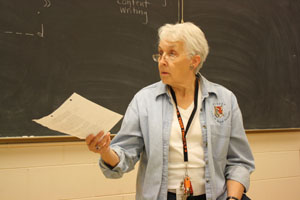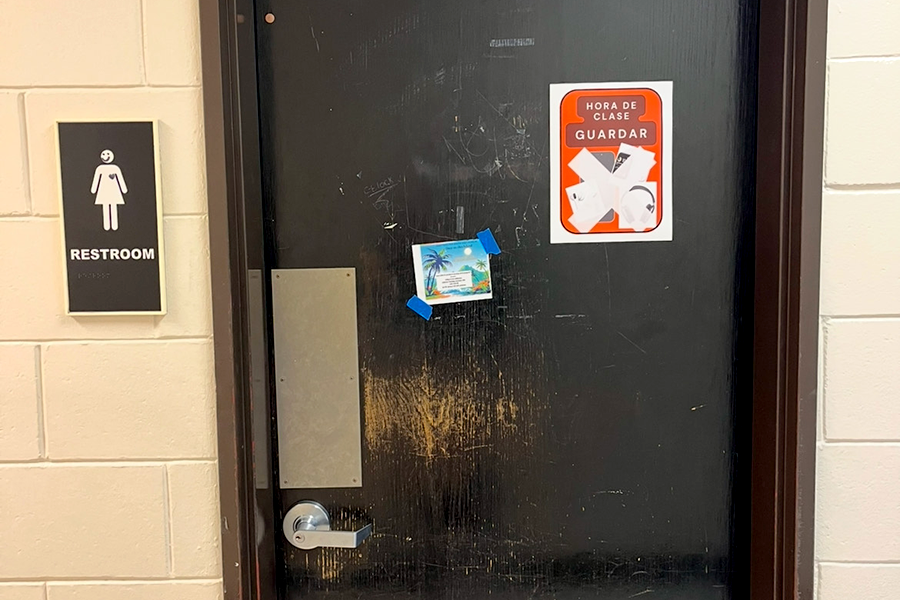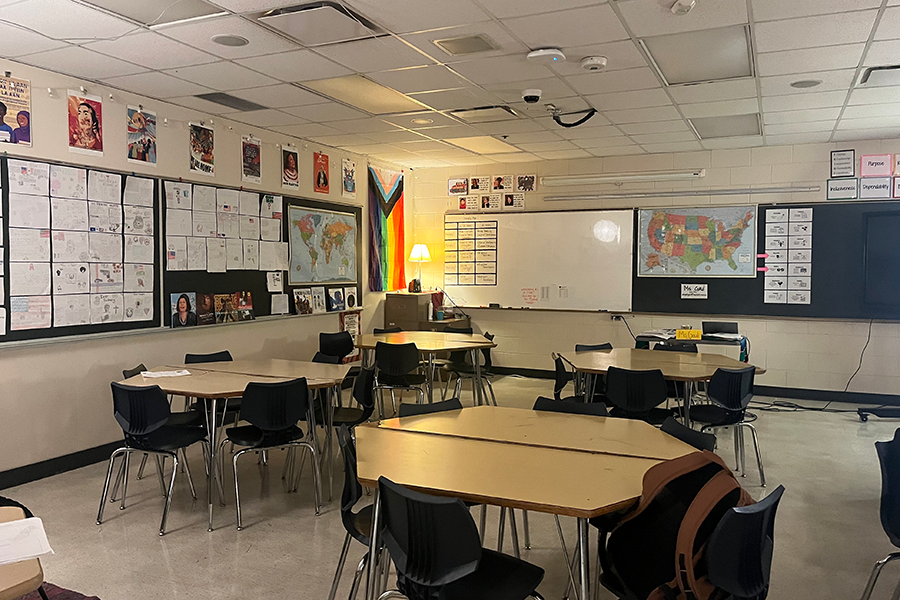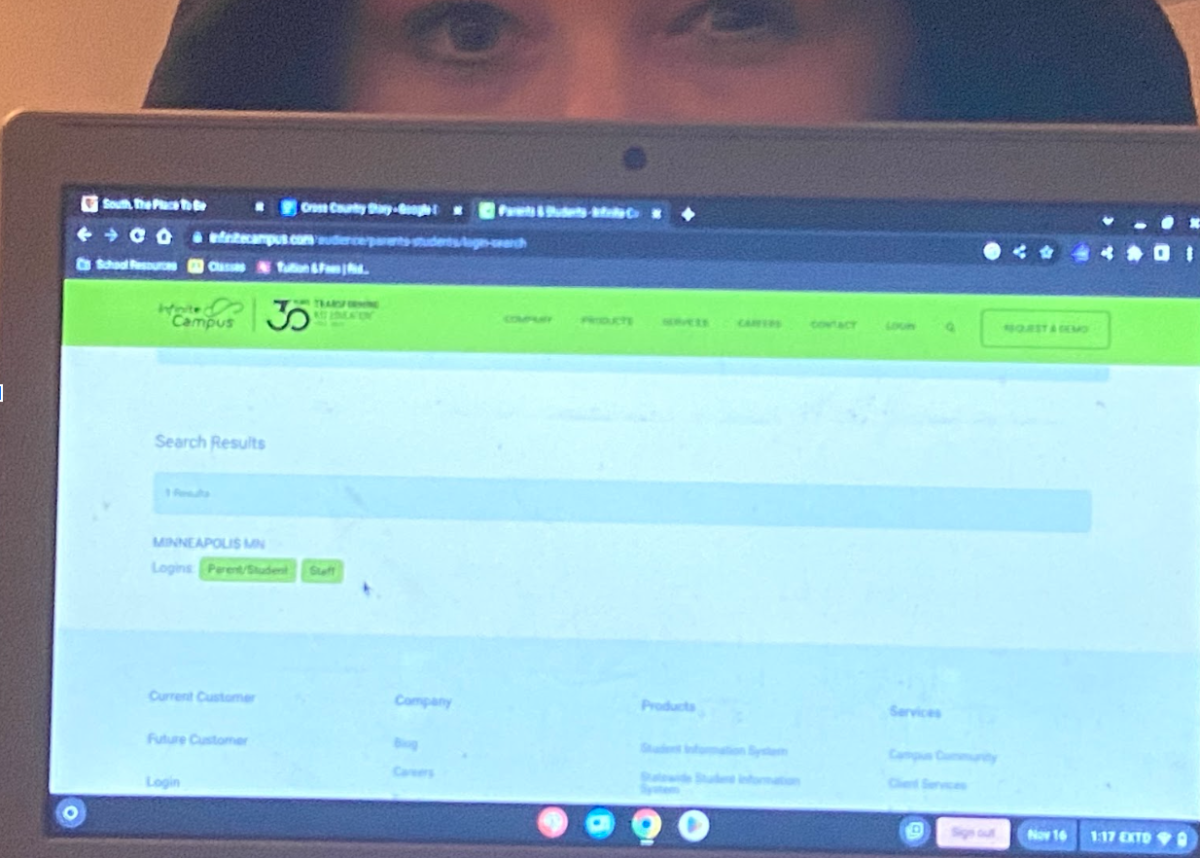 “When [teaching] stops being fun, I’ll stop doing it,” said English teacher Carol Horswill, who has been teaching for 50 years as of this year, and has taught at South since 1982. After teaching for half a century, Horswill has reached a milestone in her life that will remain unparalleled by many other teachers in the future.
“When [teaching] stops being fun, I’ll stop doing it,” said English teacher Carol Horswill, who has been teaching for 50 years as of this year, and has taught at South since 1982. After teaching for half a century, Horswill has reached a milestone in her life that will remain unparalleled by many other teachers in the future.
Over the years Horswill has seen an abundance of changes in the school, whether they be technological, social, or other changes that trended nationwide. Her personal experience serves as perspective and insight on events that are now considered historic. This isn’t to say that she’s an outdated, wretched crone of a teacher; on the contrary, Horswill has a seemingly inexhaustible energy about her that translates to how she runs her classroom and how she defines her overarching philosophy of teaching.
The reason she keeps coming back is “the sense that you have done something worthwhile at the end of the day.” In addition to the job being fulfilling,”it is never the same,” said Horswill, “even if I started the day with the same lesson plan. That makes it always new.”
Despite the ever-changing days in her classes, there are some things that Horswill claims always remain the same. “There’s always with some students rapport, intellectually and in other ways, and with others antagonism for various reasons.”
While the relationship between student and teacher may not vary wildly, the relationship from student to student does. “I really do remember having classes assemble at the beginning of a term, and all the white kids would be sitting on one side and all the black kids would be sitting on the other, and if there was enough room, the row down the middle was empty,” lamented Horswill about her early days of teaching, “what I see now is so vastly different from that.”
Although race was a divider in the classroom because “most people didn’t know how to interact” after stricter integration laws, gender was less of a big deal than in other parts of the country. “Maybe 15 years ago people used to fuss over the fact that girls were ignored in the classroom; there’s been all kind of research on that,” Horswill said with a wry smile, “it was not true in this building… South women have always said what they wanted to say.”
Gender roles were a little rockier on the teachers’ side. “The first year that I taught, I did become pregnant, and they wouldn’t let me finish the year,” said Horswill dryly, “depending on who you talk to, it wasn’t healthy for me and the baby, or the students wouldn’t respect me, or [they would] treat me badly or something like that, it was never clear to me. Or it would confuse the students; apparently none of them had mothers who have ever been pregnant before.”
Not only was Horswill rejected for a quarter of a year for being pregnant, but she, along with the other female staff members, were also not allowed to wear pants to work. “There wasn’t anything written, we just sort of knew,” said Horswill, rolling her eyes at the tabooed apparel, “we could wear them under our skirts to keep our legs warm to get to school in the morning… it really wasn’t until an assistant principal in my building arrived one day wearing a pantsuit, and at that point we knew it was all okay.”
One facet of teaching that has arguably progressed even more than gender roles is technology. “I really like teaching film,” explained Horswill, “I couldn’t teach it easily a long time ago because it was only available in 16 millimeters and vastly expensive to rent… [all the film teachers] got together in the summer and we fought over which few films we could afford to order and then everybody used them. Now the film program runs based on what I want to show.”
With the invention and installment of VHS and DVD players, teaching film became easier. But there are also more commonly used apparatus that Horswill watched come on to the teaching scene, such as document cameras, which “are much better than what we used to have, which are called opaque projectors.” When prompted to explain how opaque projectors work, Horswill deadpanned, “Smoke and mirrors.”
Even machines as crucial as the Xerox machine were unheard of at the beginning of Horswill’s career. Instead of copy machines, she used to use something called a ditto master, which required strenuous cranking of a lever in order to make copies. “You’d get real arm muscles to develop because of that,” said Horswill.
Although technology appears ever-progressing in education, the actual type of education, such as progressive teaching styles, has been recycled many times over. “It does seem to me that it is, in this country, cyclical. We don’t like what we have, we search for something else, we come up with something… because that doesn’t solve all the problems, we’re unhappy, so then we try something else,” Horswill pondered, “I’m not sure that in this country we really know what we want in education… if you hang around long enough, you watch the initiatives recycle.”












